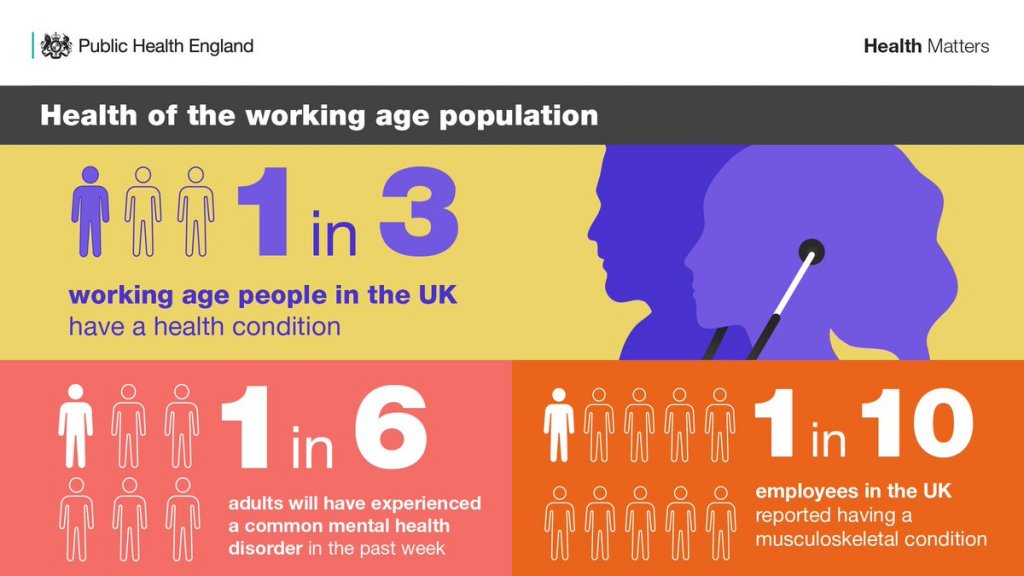Businesses often worry about getting accessibility wrong or getting into legal trouble, but adjusting to people’s needs following Coronavirus goes beyond the legal obligations.
The Office for National Statistics (ONS) shares that in the UK 27,000 people in work were considered high-risk and advised to shield from Coronavirus.
Following the ease of lockdown, 36% of those are now working from home and 5% are continuing to work outside the home – with an estimated 19,000 saying they needed to do so for the money.
In Cornwall and the Isles of Scilly, disAbility Cornwall shares that the day-to-day lives of 114,023 people are limited by a long term health condition or disability, that’s 21.33% of the region.
While in the UK, 1 in 3 people of working age has a health condition. For those who are continuing or returning to work, and making reasonable adjustments will be more helpful than ever.

What are ‘reasonable adjustments?‘
People often think adjustments are about accessible lifts and wheelchair ramps, but disabilities are diverse and people have different needs. Making adjustments gives staff with a disability the same access and opportunities as staff without a disability, often adapting to factors outside the workplace.
Reasonable adjustments should be in line with government advice following Coronavirus and may include changing the way things are done, overcoming physical barriers, providing extra assistance and equipment, or a combination of all three. For example:
- Adapting working hours
- Organising extra training or supervision
- Providing laptops with voice-activated software
- Offer a car parking space to prevent the need for public transport
- Organising check-ins or phone calls to support mental health
- Disability equality training for all staff
How much do reasonable adjustments cost?
James Collings, a partner at Foot Anstey Solicitors, says that the average cost of a reasonable adjustment is somewhere between £30 and £100 – that’s probably a lot less than you imagined?
In this video created by the Cornwall Beacon Project, James explains that businesses should be open when it comes to employment practices, like making adjustments, because having a diverse workforce brings benefits to your business – including financially.
Who pays for adjustments and decides what’s ‘reasonable’?
The government recommends that you pay for adjustments using your training budgets or existing equipment, with any additional costs helping you to determine what is ‘reasonable’. You can also apply for support from who support disabled people to start or stay in work and apply for grants under the Access to Work scheme.
To help you make an assessment, AbilityNet recommend getting a free report which to help you to review your staff’s individual needs and get a list of all (or most) of their needed adjustments.
More information on reasonable adjustments
Visit Cornwall’s Beacon Project website to get access to practical and legal guidance about making reasonable adjustments and for a hub of information to help you build an inclusive and diverse workforce.
You can also join The Inclusivity Project’s mailing list for access to our latest webinar recordings, and for access to training, discussions, new products and services to help you champion diversity and inclusion.
_________________________________________
Have you already signed up to our newsletter…?

When you sign up, you can hear about all the work we do with small Cornish businesses, giving them financial & expertise support from ERDF & the University of Exeter, as well as keeping abreast of our events.


Recent Comments